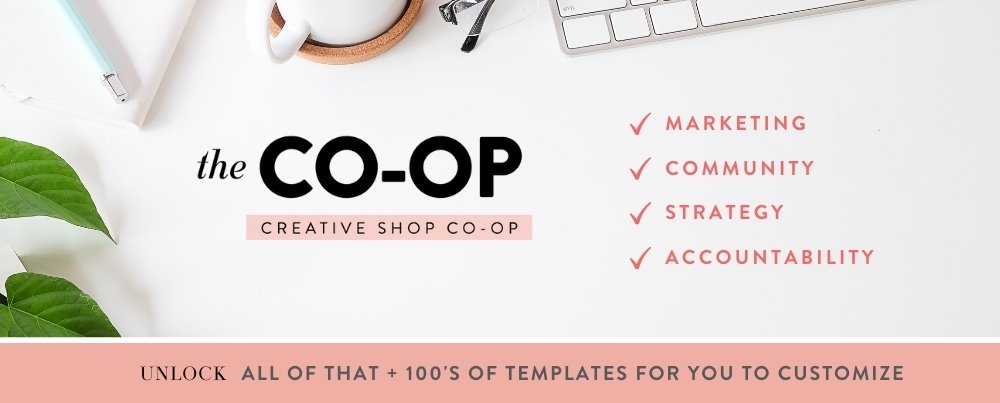How to Have Difficult Conversations
Episode 259: Show Notes
Hey everybody and welcome back to The Strategy Hour Podcast! We have a great episode in store for all of you biz unicorns that we think will be super helpful with a big part of everyone’s lives. Today we are going to be talking about communication, resolution, and how to have those difficult conversations that we all have to have sometimes. You know that when problems arise you have to deal with them in one way or another and that there are good ways and bad ways. Well, today we are going to be showing you one of the better ways to go about it. This episode was inspired by a speech by Sheila Heen from Harvard Law School that Abagail recently witnessed and needless to say, she was inspired. We hoped to pass on some of that inspiration to all our wonderful listeners so you can go out and be your best selves for the world!
During our discussion Abagail leads us through some of the steps that Sheila outlined and we give some examples of what these steps can be from personal experiences. We talk about inner dialogue and intentionality and why certain attitudes lead to having the same fight over and over. We are really trying to help you find a better way to handle conflict resolution and the first part of that is definitely in the way you approach an issue. Abagail explains how stories play a huge role in the way we understand our own perspective. These stories that we tell ourselves often determine how a particular conversation will play out. We also offer some tips for more reading on the subject and look at the book that Emylee has been reading which is dealing with similar subject matter. Ultimately the message of this episode is to slow down and take some time to try and understand someone’s point of view rather than try and prove why you are right. We know! This can be difficult! But don’t you think the world would be better off with a little more understanding? We think so!
Inner Dialogue That Occurs When We are Upset with Someone
We all have our way of dealing with a problem or confrontation but these ways are actually not that different and far away from each other. There are in fact only a few different ways to understand the inner dialogue that occurs within us in the case of being upset with someone and telling them. Often we tell ourselves, how right we are and what we are right about and decide whose fault the issues is and wonder aloud why someone might be acting in this way. It’s like we have decided the whole thing before even beginning the communication. This narrows down the possible resolutions so much. In this way, the story you are telling yourself becomes your identity and you are unable to transcend it and reach some form of understanding. These stories that we carry around can define how we relate to the world and the people around us and we want to ask you as we ask ourselves, what does that say about you?
The Question Behind The Question
Emylee has been reading a book that our coach recommended called QBQ - The Question Behind The Question and it also offers some helpful advice in this regard. The main premise of the book is that asking the right questions can really help to remedy a difficult situation instead of inflaming it. According to the author we should really be asking ourselves how can we best serve a scenario rather than how we can prove ourselves to be right all the time. So focusing more on being an aid and looking for a good outcome is the first step in tackling an issue. When confronted with an appropriate situation with her partner, Emylee tested out some of this method and had great results in making a situation much easier for him without much effort at all. Be sure to check the book out for the full guide, because, let’s face it, we could all benefit from a little help in this area!
What Happens in a Heated Discussion or Argument
We are pretty sure a bunch of the listeners out there can relate to this next point, we know it is something that we do quite regularly. Apologizing with a clause is not really an apology. So if you are saying, “I’m sorry but -“ you really need to think about the effect that that sort of statement can have on a dialogue. Most of the time it really makes the apology almost meaningless. We understand it is very easy to fall into this sort of pattern and be trying to justify your own actions, but we all need to remember conversations are two-sided! When we are having these types of conversations guided by our internal voice to be right, it’s like we are not even in the same conversation as the other person. In the end, it often does not matter who is right and wrong and playing it out to a long conclusion. What you really want is some sort of good result and bridging of the gap, right? The best advice we can offer you (advice backed up by our sources) is to just chill before jumping on the offensive! Pause and think what the conversation is really about and how you might be able to serve the situation. Asking what the other person means and how you may be able to assist or understand their point of view will go a long way!
Acknowledgement and Expressing Yourself Sensitively
Another great measure that you can take towards better conflict resolution is to talk about these ideas with them. We would strongly suggest doing this during a calm conversation and not in the middle of a heated debate or a fight! Remember we are often after the same result, and as different people we see different ways of doing things. If you can find the common ground you may be able to make some progress towards a connection and understanding where each other is coming from. But it is on you to take the lead and be the best person you can be in the difficult time. Finger pointing goes a very short way towards helping a problem! The basic structure of your approach should be to listen and then try to make sure you express what you think are hearing. That way the person can clarify your perspective and will also feel heard and acknowledged. This might sound simple but we promise, and as you might know, it is not that easy. It is much better to say you do not understand, in a caring way, than to begin yelling and lose your temper! Stay calm and talk slow, you will see the difference!
A Very Interesting And Surprising Study Done At Harvard
We know we as humans are often way too focused on ourselves. It is just part of the way our species thinks, but that does not mean we have no control over it. An experiment was done some time ago at a university campus where a lecturer told their students that they had 5 minutes to get across campus to make a presentation. The experiment was setup in such a way that on the way that these students would encounter someone who was in noticeable and definite need of medical assistance. The test was to see how many people stopped to help. As you might have guessed by now the amount of people who stopped was very low. Even when the same experiment was done with a group of clergymen, only ten percent stopped! That’s crazy, right?. We are all too caught up in our own business to potentially save someone’s life. Ask yourself what you would do and then think about the reasons for your answer. We all need to slow down, think a little less about our own concerns and stop jumping to conclusions people!
Quote This
We have to look beyond what everyone in the room is saying. Because the conversation, especially a difficult one, is often the unspoken.
Highlights
Inner Dialogue That Occurs When We are Upset With Someone. [0:04:46.9]
The Question Behind The Question. [0:08:50.5]
What Happens In A Heated Discussion or Argument. [0:14:30.2]
Acknowledgement and Expressing Yourself Sensitively. [0:21:35.6]
A Very Interesting And Surprising Study Done At Harvard. [0:26:20.2]
Lessons We Can Learn From All Of This. [0:33:01.4]
ON TODAY’S SHOW
Abagail & Emylee
The Strategy Hour Podcast
We help overwhelmed and creative entrepreneurs break down their Oprah-sized dreams to create a functioning command center to tame the chaos of their business. Basically, we think you’re totally bomb diggity, we’re about to uplevel the shiz out of your business.
KEY TOPICS
Conversations, Communication, Resolution, Selflessness, Conflict, Slowing Down





